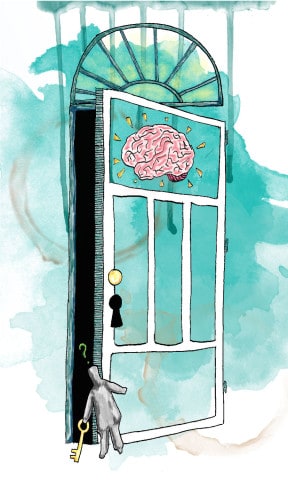An associate professor at the University of Saskatchewan is making noteworthy strides in Alzheimer’s research. With the goal of identifying populations that face a higher risk of developing Alzheimer’s, Darrell Mousseau hopes to make preventative medical intervention a reality for the disease.
An illness that leaves its victims unable to recognize or remember the people they love or the events they have experienced, Alzheimer’s has been studied for decades, and yet researchers have been unable to identify preventative measures or a cure. They also have not found much by way of early detection, save some genetic markers that apply to certain genetic forms of the disease.
Mousseau says his current study is yielding tangible data. At the centre of his study is an observed link between depression and Alzheimer’s disease.
“So we’re looking at risk factors, and a risk factor by definition is something that happens earlier on. It shows a risk of developing something later on. The one thing I’m interested in, simply  because of my training and my background, is depression,” Mousseau said.
because of my training and my background, is depression,” Mousseau said.
Mousseau earned his doctorate at the University of Alberta before moving to the United States for postdoctoral research. On his return to Canada, he worked with the National Research Council and was recruited by the U of S in 2003.
His background in the neurochemistry of depression pairs well with academic research that identifies a link between depression and Alzheimer’s, propelling his current study.
“We know the literature says that folks who are depressed have a higher risk of developing Alzheimer’s, but not all of those individuals do, so … can we tell who is and who is not going to develop Alzheimer’s?”
A trend of steadily climbing diagnoses adds an additional level of urgency to his research, a fact of which Mousseau seems acutely aware.
“Right now, there’s no cure. There’s no way to really identify [who may acquire the disease]. People are kind of scrambling,” he said.
Mousseau began this study by examining autopsied brain tissue and identifying types of tissue and molecules that match the results of previous studies. The next step is to build on those findings.
“If we look for proteins that have been involved with depression, given that these tissues kind of look like Alzheimer tissues that everyone else has, what do we find in terms of changes?”
Mousseau has detected that certain properties of patients’ brains vary based on biological sex. This finding could aid in differentiating between the levels of risk that various groups of patients face.
“We find different patterns of expression of some of these molecules in men and women. So not only are we finding that these molecules that are changed in depression are also changed in Alzheimer’s — that’s very interesting and important — but we’re also showing that there’s a sex dependence,” Mousseau said.
If all goes well, the implications of Mousseau’s research may be substantial. As it stands, when patients present to a physician with symptoms of Alzheimer’s, the disease’s momentum cannot be stopped. With these new developments however, people might one day have reason to hope.
“If we can identify someone well before they ever even show any of the symptoms of Alzheimer’s, we can start treatment,” he said.
Mousseau will consider his study a success as long as it generates a positive, real-world impact on patients’ lives. He admits, however, that his philosophy runs counter to some elements of academic culture, which he says sometimes privileges publishing articles that tow the line above all else.
While there may be challenges, Mousseau loves his research-based career and advises undergraduate students who might be considering a similar path to ensure that they are passionate about the process.
“Don’t do it for the wrong reasons. If you’re going to go into a research career path or stream, make sure that you love research, that you want to go into research.”
—
Patty Hails
Graphic: Lesia Karalash
Leave a Reply